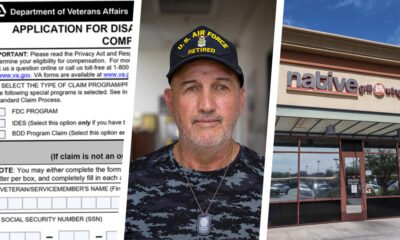Business
Employers Now Demand AI Skills Across All Majors

Christian Vivas, a creative media studio owner, is enhancing his professional toolkit through an artificial intelligence program at Miami Dade College. Previously relying on ChatGPT for routine tasks like email, Vivas, 37, has expanded his use of AI to various facets of his work, including image generation and social media management. “It’s integrated very deeply into our business now,” he explained.
The rise of generative AI is reshaping the labor market, prompting employers to seek candidates with AI competencies across diverse sectors, including healthcare and hospitality. As concerns about job displacement grow, especially among entry-level positions, many students rush to boost their AI skills to stay competitive. A report from Oxford Economics warns that AI could replace numerous jobs, with the unemployment rate for recent graduates nearing 6 percent, as reported by the Federal Reserve Bank of New York.
Among businesses, a global survey revealed that 41 percent anticipate workforce reductions due to AI implementation within five years. Nevertheless, 77 percent aim to provide training for employees to collaborate effectively with AI. The demand for AI skills has surged, with online job postings featuring generative AI skills climbing from 16,000 to over 66,000 in just a year, according to Lightcast.
In response to these trends, colleges are incorporating AI into their curricula. Miami Dade College launched its artificial intelligence certificate program in early 2023, shortly after the advent of ChatGPT. The program encompasses courses in machine learning, ethics, and natural language processing, alongside new degree offerings in applied AI.
Antonio Delgado, vice president of innovation and technology partnerships at Miami Dade College, remarked on the initiative’s inclusive nature, aiming to provide AI education to a broad audience rather than only those pursuing advanced degrees. The college also created Miami Tech Works to connect tech companies with skilled workers, witnessing heightened interest from non-tech sectors seeking AI proficiency.
Terri-Ann Brown, director of Miami Tech Works, noted a significant shift in employer attitudes towards AI adoption. For instance, a high-end hotel in South Florida, initially wary of AI, now encourages departments to explore its applications, including a chatbot for guest recommendations.
Vicky Cheung, a former hospital employee who enrolled in Miami Dade’s artificial intelligence awareness program, found that her newly acquired skills were instrumental in securing a position focused on process improvement at a different hospital.
As institutions nationwide introduce similar AI programs, they often struggle to keep pace with the rapidly evolving technology. The lack of a standardized curriculum poses challenges, as educational institutions typically develop slowly due to administrative processes.
Josh Jones, CEO of QuantHub, pointed out the difficulty of keeping content relevant amidst AI’s rapid development. Colleges face specific ethical dilemmas, including concerns over academic integrity and the environmental impact of data centers.
Schools have acknowledged these challenges, emphasizing the necessity for students to learn AI capabilities while maintaining critical thinking skills. James Taylor, a philosophy professor, adjusted his teaching methods to prevent reliance on AI for assignments, instead facilitating traditional methods to enhance student engagement.
Derrick Anderson, a public affairs instructor at Arizona State University, embraces the integration of AI in classroom tasks. He now assigns video projects utilizing ChatGPT, aiming to equip students with practical skills for the job market.
Ken Finneran, a human resources executive at eMed, affirmed the increasing importance of AI skills across all departments within the company. He noted that AI tools have improved productivity significantly, and the collaboration between doctors and AI enhances diagnostic accuracy.
Vivas relayed concerns from freelancers about being replaced by AI, emphasizing a collaborative approach with technology. He warned that ignoring AI could jeopardize job security: “The person that is using AI is going to replace them,” he stated.


















